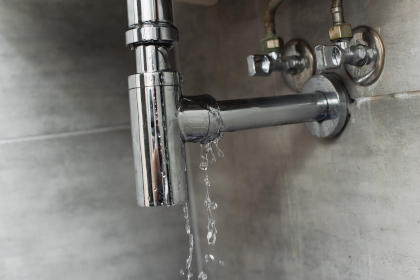Managing monthly expenses can be overwhelming, especially when utility bills increase some months and you have a fixed income. For many seniors, the concern isn’t just about rising costs but also the fear that cutting back on energy use might compromise their comfort.
Medbox: Nu mai sortați niciodată medicamentele
The good news is that managing your energy use does not mean sacrificing your lifestyle or wellbeing. By making small, practical changes and adjustments around your home, you can significantly reduce your utility costs.
Here’s a guide with practical tips to help you reduce your utility bills, save money, and enhance your home’s energy efficiency.
Simple Ways To Save Money on Your Utility Bill
Common utility bills include electricity, water, and gas. The first step to lowering your bill is to understand where your money is currently going. Once you know the areas that increase your bills the most, you can follow these strategies to reduce your utility costs:
Electricity
1. Turn Off the Lights and Disconnect Appliances
If you’re leaving a room or going out for any enjoyable activities, always turn off the lights. You may also want to unplug appliances and electronics, such as TVs, phones, and microwaves, when they’re not in use. When you leave them plugged in, you’re consuming energy, and this can increase your electricity bill.
A basic power strip enables you to cut power to multiple devices simultaneously with the press of a button or flip of a switch. Smart power switches can automatically cut power to energy vampire devices when not in use.
2. Use LED Lights
Știați că lighting accounts for 15% of the average home’s energy consumption? If you have old incandescent bulbs, it’s time to replace them with LED bulbs. They use less energy and last much longer. Even with the upfront cost of changing bulbs, you should come out ahead over time.
Meanwhile, during the day, you can switch off your lights and use natural light from your window. This small change can save you a lot of money on your electricity bill.
3. Replace Old Appliances
As a senior, you may have appliances that are decades old. Old appliances typically consume significantly more energy than their modern counterparts, which can lead to higher utility bills. It might be time to replace your old washing machine, refrigerator, or air conditioner with an ENERGY STAR-certified version. The next time you’re shopping for anything that plugs in, look for energy-efficient alternatives.
4. Take Advantage of Senior Discounts
Some seniors understandably face financial challenges. Fortunately, some utility providers offer rate reductions for seniors. If you’re over 65 and living on a low income, you might qualify. You can ask your utility provider if they offer senior discounts and check your eligibility. You can also apply to programs like the Low-Income Home Energy Assistance Program (LIHEAP) to access financial assistance on household energy costs.
Water
1. Repair Any Water Leaks

Leaks, no matter how small, can significantly increase your water bills. Check for any leaks or drips around your home, including those in toilets, faucets, and pipes. If you detect any leaks, ensure they are fixed as soon as possible. By doing so, you reduce water waste and can save thousands of gallons per year. Fixing leaks in your home can help you save up to 10% on your water bills.
Prescripțiile dvs. sortate și livrate
2. Use Low-Flow Showerheads and Faucets
Low-flow showerheads and faucets help reduce your water use every time you shower, wash your hands, or do the dishes. They are water-efficient, meaning they use less water but still have good pressure. This reduced water usage lowers your bill and can help you save up to 2,700 gallons of water every year. When purchasing a low-flow showerhead or faucet, ensure it bears a WaterSense label. This label indicates that it meets the standards recommended by the United States Environmental Protection Agency (EPA).
3. Use the Washing Machine and Dishwasher on a Full Load
Managing water doesn’t mean you can’t do the dishes or laundry. However, you should perform these activities with a full load. This means you should avoid running your dishwasher and washing machine unless they are full. Doing so will help you save money on energy and water. As we recommended earlier, you may also want to invest in an ENERGY STAR-certified washing machine and dishwasher, as they use fewer resources when in use.
4. Turn Down the Water Heater
Most water heaters come with a default setting of 140ºF. Leaving it at this setting means your water heater will leak heat into the surrounding area, and it’s probably too hot for a comfortable shower. Lowering the temperature to around 120ºF helps you reduce your energy bill by up to 22% annually.
Heating and Cooling
1. Use a Programmable Thermostat
Sometimes, you might forget to adjust the settings of your thermostat. This often happens when you’re getting ready for bed or heading out of the house. A programmable thermostat saves you the stress of manually adjusting your home’s temperature. The temperature of your home automatically changes according to your schedule. With a programmable thermostat, you can save up to 8% on your heating and cooling bills. A smart thermostat can adjust automatically when you leave and return home.
2. Use Fans Instead of the Air Conditioner (AC)
Did you know you can run your fan all day and still use less energy than if you turned on the AC for just 15 minutes? Fans consume far less energy than air conditioners, and they still help keep you cool. During the winter, position your fan to push the warm air from your ceiling back down into your room. This will help you feel warmer without increasing the temperature on your thermostat.
3. Service your HVAC System Regularly
If you don’t clean your heating, ventilation, and air conditioning (HVAC) systems regularly, they become less efficient and use more power and natural gas. Allowing your HVAC system to clog makes it work harder and less efficiently. The system also breaks down more quickly, and dirt or dust can lead to poor air quality. That is why it is essential to change your air filter on the recommended schedule. Swapping in a new filter every 3 months is a good reference point, but it’s best to check the manufacturer’s instructions to confirm the exact frequency. It’s also advisable to have a qualified, trusted technician inspect your HVAC system annually.
Obțineți pastilele pre-sortate și livrate fără costuri suplimentare
4. Close the Blinds and Draw the Curtains
Closing your blinds and drawing your curtains can limit heat from entering through your windows. When your home is cool, you won’t have to use air conditioning as often. This reduces your energy cost. Meanwhile, check for air leaks around your windows, doors, and floor. Depending on the weather, they can allow both hot and cold air into your home. If you notice any leaks, you can seal them up with caulk or spray foam, or ask your favorite handyman or handylady to take care of it for you.
Concluzie
You don’t have to be uncomfortable in your home to reduce your utility bills. You simply need to make some adjustments to reduce energy use. As you incorporate these tips to reduce your utility bills, you should see a noticeable difference in your bills over time.


